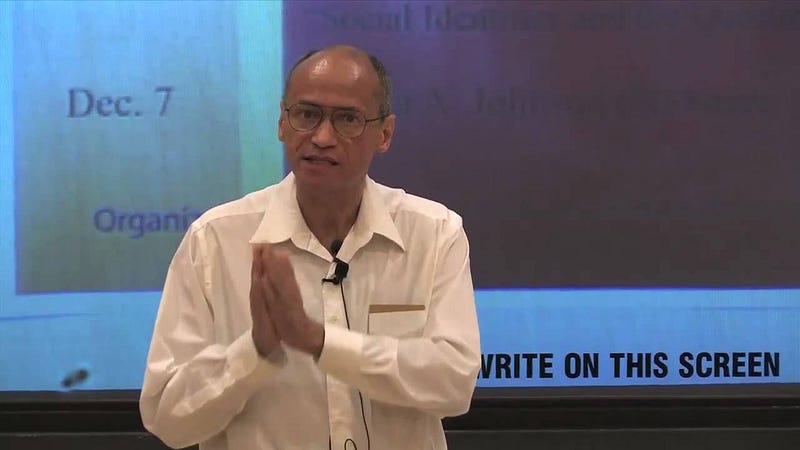
Photo Courtesy of Youtube
On Friday, Nov. 2, the College’s Philosophy Department hosted the 24th-annual Philosophy Born of Struggle Conference. The event, open to the campus community, was titled “Answering the Call: Philosophies Born of Struggle in the Twenty-First Century” and featured an array of speakers and guests from the world of philosophy.
The keynote speaker, Charles W. Mills, Distinguished Professor of Philosophy at the CUNY Graduate Center, was introduced by Hamilton alumnus Alfred Prettyman ’56. Both Prettyman and Mills are influential figures in African American philosophical thought and the social implications involved in philosophy.
Professor Todd Franklin, Christian A. Johnson Excellence in Teaching Professor of Philosophy and chair of the Africana Studies Department, introduced the 2-day event, saying: “The
Philosophy Born of Struggle (PBOS) conference was first organized in 1993 by J. Everett Green at Rockland Community College. It officially took on the name Philosophy Born of Struggle several years later to continue the study and traditions announced by Leonard Harris’ anthology Philosophy Born of Struggle: Anthology of Afro-American Philosophy from 1917.
“Every year PBOS enjoys being hosted by universities and colleges throughout the country. For over two decades, PBOS has remained a traveling conference dedicated to bringing Africana philosophy to various communities, be they academic or not, in the United States.
“Over the last several years, PBOS has sought to be a home to voices that hear and speak to new, historically excluded, immigrant, déclassé, discriminated against, gendered and non-gender conforming philosophers.”
In his keynote address, Mills brought to light the dangers of silencing and excluding African Americans in traditional philosophical thought by examining John Rawls’ “unrealistic whitopia.” Mills cited Rich Benjamin’s book,
Searching for Whitopia: An Improbable Journey to the Heart of White America
(2009), in which the author refers “specifically to white flight to the segregated suburbs and exurbs.”
Mills pointed out how these utopian sites, a kind of “shining future”, are generally denoted and shaped by whiteness, “whether as straightforward white racism and exclusion or more ambiguous race-evasion,” while avoiding discussion of racial justice and promoting a culture of white domination and privilege.
Mills also examined the root of this “virtual non-discussion of racial justice in the vast Rawlsian literature” by tracing it back to the history of Western civilization. Looking at a Eurocentric past of genocidal history like the Holocaust, as well as white-powered imperialism and colonialism, he said it is no surprise that “Euroutopia as whitopia has not been aberrant, but the norm, if not always as genocide then certainly as the racial subordination of people of color for the goal of white flourishing.”
He described the long history of Western countries as white-dominated and white-washed and the subsequent efforts of erasure of the voices of those who were discriminated against. This reality, he said, results in their absence from philosophical discussion.
Mills asked: “Where in the 2,000 pages of Rawls’ five books do we hear the voices of any people of color, the victims of the racial dystopia imposed on them by the modern Western states? […] No mention at all of Native Americans; no engagement with the theorizing of the black ‘Afro-modern’ political tradition.” Despite the existence of prominent thinkers in the black diaspora, Mills argued the voices and ideas of African Americans are ignored in this white utopia.
Mills’ keynote address focused largely on discrimination within this philosophical context of the Rawlsian utopia, but he also extended his argument to modern society, pointing to our time as one in which many of these white-dominated norms are still prevalent and still silence people of color.
